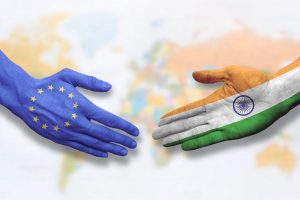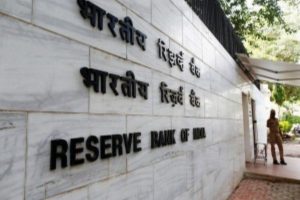India was able to save more than 3.4 million lives during Covid-19 by undertaking the nationwide vaccination campaign at an unprecedented scale, according to a working paper released by Union Health Minister Mansukh Mandaviya here today.
The working paper, titled “Healing the Economy: Estimating the Economic Impact on India’s vaccination and related issues”, brought out by Stanford University and the Institute for Competitiveness said though the vaccination campaign was always on saving lives, it yielded a positive economic impact by preventing a loss of $18.3 billion. The country earned a net profit of $15.42 billion after taking into consideration the cost of the vaccination campaign, it said.
Advertisement
“Much before Covid-19 was declared a public-health emergency by the World Health Organization (WHO) in January 2020, processes and structures to focus dedicatedly on various facets of pandemic management were put in place. India under the leadership of Prime Minister Narendra Modi adopted a ‘Whole of Government’ and ‘Whole of Society’ approach in a proactive, preemptive and graded manner thus adopting a holistic response strategy, for effective management of Covid-19,” Mandaviya said on the occasion.
The working paper discusses the role of containment as a measure to prevent the spread of the virus. It highlights that, as against the top-down approach, a bottom-up approach was critical in containing the virus.
Moreover, the working paper remarkably notes that robust measures at the ground level, like contact tracing, mass testing, home quarantine, distribution of essential medical equipment, revamping healthcare infrastructure, and constant coordination among stakeholders at the centre, state, and district levels, not only helped contain the spread of the virus but also in augmenting the health infrastructure.
It elaborates on the three cornerstones of India’s strategy – containment, relief package, and vaccine administration. It observes that these three measures were critical in saving lives and ensuring economic activity by containing the spread of the virus, sustaining livelihoods, and developing immunity against the virus.
Praising the countrymen’s efforts, Mandaviya credited a large part of the success to the citizens who cooperated with the government and other stakeholders in the fight against Covid-19.
Hailing the decision of an early lockdown by the Prime Minister as a significant turning point, he alluded that it enabled the government to leverage community response in its five-pronged strategy to combat Covid-19 namely Test- Track – Treat – Vaccination – Adherence for implementing Covid Appropriate Behaviour (CAB) and delivering a rapid and robust institutional response.
Reiterating the need for robust cooperation among stakeholders, Mandaviya said that the “government focused on augmenting health infrastructure in terms of Covid related beds, drugs, logistics i.e., N-95, PPE kits and medical oxygen, simultaneously up-skilling human resources through Centres of Excellence and deploying digital solutions such as eSanjeevani Telemedicine service, Aarogya Setu, Covid-19 India Portal, etc.”
Equal weightage was given to scaling up the testing infrastructure at an unprecedented rate exceeding the superlative figure of 917.8 million tests conducted. Additionally, a network of 52 labs for Genomic Surveillance was established for monitoring emerging variants of the virus, he further added.
Mandaviya stated that “building on this momentum, India launched the world’s biggest vaccination drive, garnering coverage of 97 per cent 1st dosage and 90% of the 2nd dosage, administering 2.2 billion dosages in all for eligible beneficiaries.











